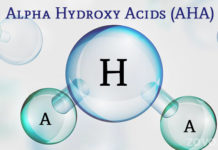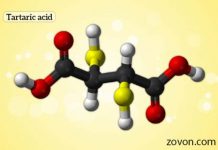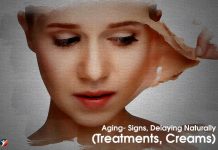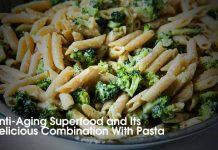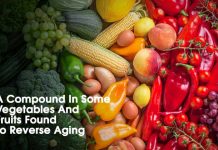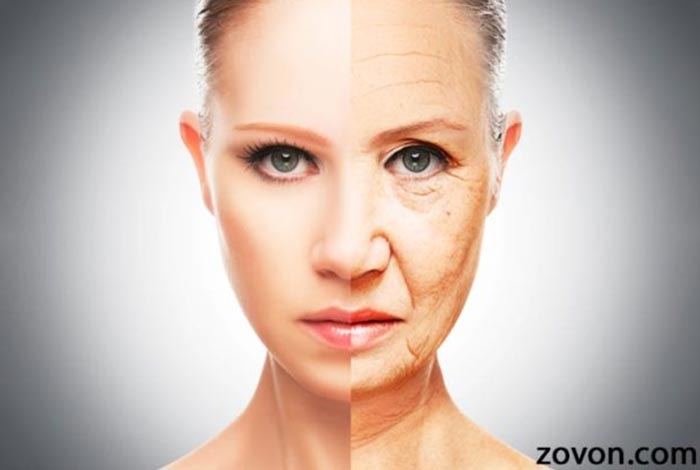
9 Antioxidants That Help Combat Premature Skin Aging

Aging is a time-dependent process which results in continuous changes in the body that are associated with increased susceptibility to diseases and ultimately death. In a human being, it brings about physical, psychological and social changes. Growing evidence now suggests that aging is actually the effect of all the deleterious free radical reactions going on continuously in our cells and tissues.
In humans and other mammals, the free radical reactions are those involving oxygen. Thus Antioxidants are the remedy that can restrict signs of aging. These substances have the potential to inhibit the symptoms of aging and maintain younger health conditions both internally and externally. Antioxidants work both as neutralizers and preventers against free radicals. They protect the skin cells from damage and also boost our system to generate newer cells.
How do antioxidants work for skin?
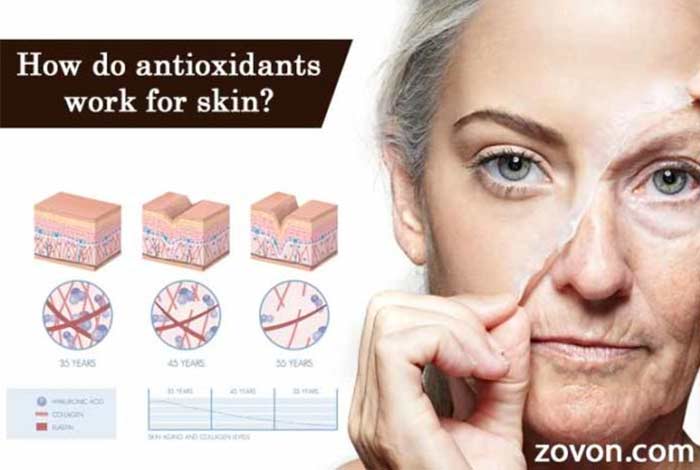
Oxygen plays a negative role in our bodies due to its highly reactive nature. It induces molecular breakdown and sets free a pair of electrons called “free-radicals”. These free radicals are responsible for skin damage at the tissue and cellular level. These free-radicals are unstable because they contain unpaired electrons and attack stable molecules and capture their electrons to attain stability and making them unstable. This process continues like a chain reaction resulting in accumulation of free radicles and which in turn leads to pathogenesis and premature aging of healthy cells and tissues.
These free radicals ultimately give way to diseases such as skin cancer, heart diseases, poor brain function, immune system diseases etc. Antioxidants restrict this process and build a complex protection system against these free radicals in human body. In skin cells and tissues, they restrict the breakdown of collagen and thicken the deeper layers of skin where wrinkles start. These antioxidant molecules are relatively small and so they penetrate easily into the deeper layers of the skin and thus rejuvenating it.
Anti-aging benefits of antioxidants:
By destroying free radicals, antioxidants protect the largest tissue system in our body i.e. the skin. Antioxidants work at two levels i.e. they prevent skin cell damage by reducing free-radicals and on the other hand, they support the new cell generation system. The benefits of antioxidants are as below:
- Protect our skin from tobacco smoke, UV radiation, and sun tanning.
- Prevent premature skin aging.
- Enhance the activity of lower level skin cells.
- Improve dry skin condition, wrinkles and fine lines on the skin.
- Nourish skin by supplying adequate moisture and oxygen to the cells.
- Regulate blood circulation throughout skin vessels.
Antioxidants and their natural sources create an immunity system inside the body that prevents a number of disorders. FDA suggests taking natural ingredients for antioxidants instead of synthetic. So, here are a few natural antioxidants we should rely on:
Vitamin E
Vitamin E is a fat-soluble antioxidant that inhibits production of reactive oxygen species. It also prevents some chronicle chronic diseases caused by free-radicals.
Source:
Vitamin E has plenty of natural sources such as wheat germ oil, almond, hazelnuts, sunflower seeds, pine nuts, avocado, kiwi, red bell pepper, paprika, mustard greens, margarine, wheat, papaya, broccoli, tomato, spinach, parsley, olive, oregano. It can also be got from artificial sources such peanut butter, cheese, as well as nutritional supplements.
Effects on skin:
- Treats stretch marks and sunburns
- Moisturizes skin cells
- Prevents premature aging of skin
- Lightens dark spots and brighten skin
- Cleanses skin cells
- Prevents acne
Beta-carotene
Beta-carotene is a pigment that is available in the natural fruits and vegetables. It restricts cell damage from free-radicals. Carotene is present in many forms in plants and almost all types, like alpha and beta-carotene, are provitamin A i.e. these are converted into vitamin A in our bodies and its different products.
Source:
Carrots, sweet potato, spinach, lettuce, butternut, cantaloupe melon, red and yellow bell peppers, peas, broccoli.
Effects on skin:
- Works for bright and healthy skin and reduces sun sensitivity
- Protects skin from UV radiation
- Prevents scleroderma (skin hardening)
- Treats dry skin by supplying adequate moisture
Spirulina
It is a blue-green alga that contains multiple vitamins and nutrients. It is available in the marine environment.
Effects on skin:
Micro-nutrients present in it catalyze activity of antioxidants and all the vitamins and thus render them more effective.
Vitamin C
Vitamin C is a water-soluble antioxidant that not only prevents diseases by restricting free radicals but also is effective on some diseases caused by the activity of reactive oxygen species.
Sources:
- All the citrus fruits like lime, lemon, orange, grapefruit are main sources of vitamin C
- Berries, cherry, papaya, black currant, kiwi, bell peppers, guava, melons, spinach, mustard, cauliflower, tomato, broccoli are some other fruit and vegetable sources of vitamin C.
- Some herbs such as chives, basil, thyme, parsley are also rich in vitamin C
Effects on human skin:
- Reduces dryness
- Treats wounds
- Brightens skin
- Treats sunburn
- Improves skin texture by improving collagen growth
Vitamin A
Vitamin A is a fat-soluble element that works as a super antioxidant. It has three components, retinol, retinal and retinoic acid called retinoids, are responsible for all its activities.
Sources:
Vertebrate proteins are excellent sources of vitamin A; Beef liver, lamb liver, cod liver oil, mackerel, tuna, trout, egg are the animal sources. Green sources include sweet potato, kale, turnip, carrot, red pepper, spinach, lettuce. Artificial sources include supplements, butter, cheese etc.
Effects on human skin:
- Normalizes blood flow and keeps skin blood vessels healthy and clean
- Effective wound healer
- Prevents skin exfoliation
- Repairs damage done by UV radiation and sunburn
- Supplies moisture to the cells
Astaxanthin
Astaxanthin is a pigment that is responsible for red/brown/pink coloration of the marine animals. Marine animals like trout, lobster, sea bream, crawfish, shrimp, krill are the sources of it apart from the raw algae.
Effects on human skin:
- Improves collagen formation and peels off old skin
- Nourishes cells and balances moisture content
- Reduces wrinkles, dark-spots, dull-skin
- Protects from UV radiation damage
Resveratrol
Resveratrol is an organic molecule that inhibits free radicals and protects body immunity system. It has some natural sources like red grapes, peanuts, cocoa, berries. It is also present in some food products and synthetic drinks such as red wine, peanut butter, cheese, ketchup etc.
Effects on human skin:
- Regulates blood circulation in skin cells.
- Peels of old skin.
- Smoothens and brightens skin.
Lycopene
Lycopene is a carotenoid but doesn’t get converted into vitamin A in our body, like other carotenoids. It is beneficial against cancer and heart diseases.
Sources:
- Some natural fruit sources of lycopene are mango, guava, watermelon, papaya, grapefruit.
- Vegetable sources of lycopene include tomato, carrot, Purple cabbage, asparagus, bell peppers.
- Lycopene is also available in beverages and used as dietary supplements.
Effects on human skin:
- Prevents skin from UV rays and reduces damage caused by sunburn.
- An excellent anti-aging agent that effectively reduces dull skin and wrinkles.
- Lightens and brightens skin.
- Supplies moisture to the skin cells.
Tea and coffee
Tea is an aromatic beverage that is considered as an energy booster. It has several varieties throughout the world depending on the growing environment and population demand. Coffee bean or coffee seed is another energy booster beverage used throughout the world.
Source:
China is the highest producer of tea followed by India, Sri Lanka, Kenya, Vietnam, Indonesia, Argentina, Japan.
South America exports the maximum amount of coffee and followed by U.S.A, some African countries and India.
Effects on human skin:
- Improves skin texture.
- Reduces inflammation.
- Reduces dark circles.
- Helps in fat burning by dehydrating fat cells.
- Helps in blood circulation and reduces redness.
- Effectively treats skin damage caused by UV rays.
- Smoothens puffy skin and compacts it.
- Supplies moisture to the skin cells and brightens them.

